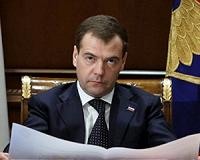| . |  |
. |
Washington (AFP) Nov 18, 2010 US officials are increasingly concerned that dramatic cuts in European defense budgets could gut the NATO alliance and leave Washington without effective military partners in Europe. The growing transatlantic gap in military spending and technology will be looming over this week's NATO summit in Lisbon, raising tough questions about how the alliance will operate in the future, analysts and former officials said. "In terms of having a viable alliance, this is clearly troubling," Robert Hunter, former US ambassador to NATO, said of the budget cuts. In Lisbon, "it's going be in the back of everyone's minds -- how do we keep up the capabilities?" With European governments trying to head off fiscal crisis with austerity budgets, deep defense cuts in Germany, France and especially Britain have caused dismay in Washington. The cutbacks, including an eight percent reduction in Britain's defense budget, will aggravate a chronic shortage among NATO allies of helicopters and transport aircraft, a problem that has plagued British forces deployed in the war in Afghanistan. Justin Vaisse, a senior fellow at the Brookings Institution, told AFP "the short term impact is that there will be less budget funds available for joint NATO operations and less and less manpower and resources, particularly for strategic airlift or helicopters." The result could turn NATO into a "support force," he said, instead of a military alliance ready to move troops and weaponry quickly to a hot spot. In the longer-term, the gap in technology and military hardware could reach a point where European armies no longer are able to operate together with the Americans, he said. Even before the latest defense cuts, the United States has looked to forge strong military partnerships with countries outside of NATO, including Japan, South Korea and Australia, experts said. "The importance of NATO on the American agenda has already diminished. NATO counts for less," Vaisse said. European officials and defense experts argue that if NATO members want to retain their military punch, they will have to sacrifice some independence and pool resources and funds. "One of the ideas that's out there, which needs to be thought about very, very seriously, is whether every country needs to worry about its own defense or whether there could be some things that would be done through cooperative action with other countries," Hunter said. "That is the big leap for countries, to say we may not be totally sovereign in our own defense, that we are going to depend upon neighbor X," he added. In one example of military cooperation, a recent deal agreed by Belgium, France, Germany and the Netherlands pools 200 transport aircraft under a single command. France and Britain, faced with mounting fiscal pressures, signed an agreement this month for a ground-breaking cooperative effort, sharing aircraft carriers and nuclear testing equipment as well as setting up a joint rapid reaction force. But British Prime Minister David Cameron insisted the arrangement did not mean his country would be giving up its military independence. "Partnership -- yes. But giving away sovereignty -- no" is how Cameron described it. US Defense Secretary Robert Gates has warned that NATO's new strategy paper due to be approved at the Lisbon summit could turn out to be meaningless unless European countries invest in the planes, helicopters and combat-ready troops needed to turn the policy into a reality. "The demilitarization of Europe -- where large swaths of the general public and political class are averse to military force and the risks that go with it -- has gone from a blessing in the 20th century to an impediment to achieving real security and lasting peace in the 21st," Gates said in a speech in February. Shortfalls in funding and capabilities "make it difficult to operate and fight together to confront shared threats," he said.
Share This Article With Planet Earth
Related Links Learn about the Superpowers of the 21st Century at SpaceWar.com Learn about nuclear weapons doctrine and defense at SpaceWar.com
 NATO seeks to allay Russian suspicions at summit
NATO seeks to allay Russian suspicions at summitMoscow (AFP) Nov 18, 2010 President Dmitry Medvedev attends a summit of NATO leaders this weekend in a boost for Russia's relations with its Cold War foe but with Moscow still showing suspicion at plans for joint missile defence. Medvedev will be the first Russian president to attend a NATO summit since the row over his country's 2008 war with Georgia, and the alliance's Secretary General Anders Fogh Rasmussen believ ... read more |
|
| The content herein, unless otherwise known to be public domain, are Copyright 1995-2010 - SpaceDaily. AFP and UPI Wire Stories are copyright Agence France-Presse and United Press International. ESA Portal Reports are copyright European Space Agency. All NASA sourced material is public domain. Additional copyrights may apply in whole or part to other bona fide parties. Advertising does not imply endorsement,agreement or approval of any opinions, statements or information provided by SpaceDaily on any Web page published or hosted by SpaceDaily. Privacy Statement |